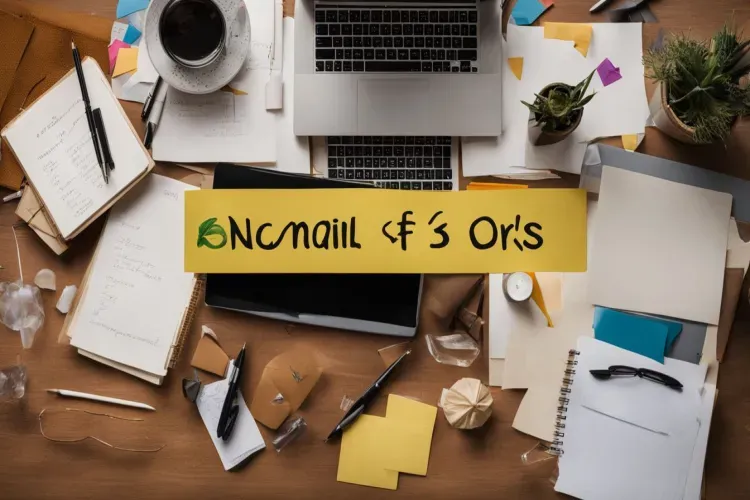Are you feeling stuck in your real estate career and looking for a way to stand out? A Real Estate Transaction Coordinator is essential in today’s market. This guide will show you how to become one, guiding agents through every part of a deal.
Read on to unlock this rewarding path.
Defining a Real Estate Transaction Coordinator

A real estate transaction coordinator is like the backbone of property dealings. They help real estate agents keep track of all the paperwork and deadlines in a house sale or purchase.
This person makes sure everything runs smoothly from start to finish. They handle tasks such as setting up meetings, making sure signs get put up at properties, and keeping records straight for buyers and sellers.
Their job is to take care of the details so agents can focus on helping their clients.
They also work closely with people outside the agency, like mortgage loan officers and home inspectors, to ensure every part of the transaction meets legal requirements. A good coordinator needs to know a lot about how buying and selling houses works.
This includes understanding contracts, knowing what inspections are needed, and following state laws about real estate transactions. With their skills, they make sure everyone involved knows what’s happening at each step and that no deadline gets missed.
Importance of a Real Estate Transaction Coordinator

A real estate transaction coordinator keeps the sales process smooth. They handle important steps like paperwork and meeting deadlines. This role is key to helping real estate agents stay organized.
They make sure every detail is correct, from start to finish. Their work lets agents focus on selling homes and helping buyers find their dream house.
I’ve worked in this role and seen how vital it is firsthand. We manage tasks that agents don’t have time for. These include setting up inspections, handling client databases, and making sure contracts meet legal rules.
Without us, deals could fall apart or face delays. Our goal is always to keep everything on track for a successful sale.
Skills Needed for a Successful Transaction Coordinator
To do well as a Transaction Coordinator, you need certain skills. These include paying close attention to small details, understanding how real estate works, learning things quickly, keeping things organized, and talking clearly with others.
Want to know more? Keep reading!
Attention to Detail
Attention to detail is key for a real estate transaction coordinator. This skill means checking each part of the deal carefully. Every document, from contracts to property inspections, needs a close look to avoid mistakes and delays.
It’s about catching small errors that could lead to big problems later. This careful watching helps keep clients happy and makes sure everything follows legal rules.
For this job, knowing how to use customer relationship management systems (CRMs) and other digital tools is a must too. These systems hold info on properties and clients, making it easy to find what you need fast.
Good coordinators use these tools to track every step of the sale process, ensuring nothing gets missed or forgotten.
Real Estate Experience
Having experience in the real estate industry is key for a transaction coordinator. You need to know how houses are bought and sold. This means being familiar with all sorts of forms, contracts, and legal papers that are part of selling a property.
I learned this firsthand after spending years in the field, working closely with both buyers and sellers. It taught me not just about the paperwork but also about meeting everyone’s needs during a sale.
To do well as a transaction coordinator, it helps if you’ve worked in different parts of real estate before. Maybe you were an assistant at a real estate agency or helped manage property sales.
These roles give you insight into what agents and clients expect. Plus, they show you how to keep things moving smoothly from start to finish without missing any steps or deadlines.
Quick Learning Ability
In real estate, things move fast. Deals change, and laws update often. A transaction coordinator with quick learning ability adapts swiftly to these changes. They can pick up new skills or knowledge quickly.
This skill means they are always ready to handle whatever comes their way in the dynamic real estate market.
I’ve seen firsthand how quick learners stand out in this role. They use tools like customer relationship management (CRM) systems and digital marketing platforms without skipping a beat.
These coordinators don’t just keep up; they stay ahead, making sure clients and agents alike get top-notch service every step of the way.
Organizational Skills
Good organizational skills are key for a real estate transaction coordinator. You manage lots of details and keep track of many tasks at once. This means creating schedules, keeping lists, and making sure nothing gets missed.
Good systems help you handle client databases efficiently. This is crucial in real estate where timing and order matter a lot.
You also need to be good at solving problems fast. Sometimes deals change or unexpected issues pop up. Being organized lets you adjust quickly without stress. Use tools like computer programs for calendar management and task tracking to stay on top of everything.
This way, you ensure every deal moves smoothly towards closing day, helping both agents and clients remain happy with the process.
Excellent Communication Skills
Good communication skills are key for a real estate transaction coordinator. You must talk and write clearly to agents, buyers, and sellers. This means explaining complex terms in simple ways.
It’s also about listening well. You need to understand what clients want and need. Being good at this helps solve problems fast.
You will use email, phone calls, and direct conversations every day. Knowing the best way to share information is important. Sometimes an email is enough; other times, a quick meeting works better.
For everything to go smoothly, everyone must stay on the same page from start to finish of a house sale or purchase.
Understanding Real Estate Terms: What Does “Under Contract” Mean?
“Under Contract” is a big step in buying or selling a house. It means the seller and buyer agree on the price and conditions. Now, they work to finish the sale. This time is critical.
Everyone must do their jobs right to keep things moving smoothly.
I once helped close a deal where “Under Contract” almost fell through. The buyer found issues during inspection. Luckily, we talked it out and agreed on repairs. This stage needs clear talk and quick action.
Each day matters as buyers check the property and sellers fix any problems, aiming to reach closing day without trouble.
Steps to Start a Transaction Coordinator Business
Kicking off a business as a transaction coordinator is exciting. First, think of a catchy name that grabs attention. Then, make your business official by setting up the right structure.
You need to get the correct permits too. Next, dive into learning everything about managing real estate deals. Pick software that makes work easy and set prices for your services smartly.
Spread the word about what you do and always ask happy clients to share their experience. This way, you’re on track to build something great.
Choosing a Business Name
Picking the right name for your business is like naming a baby. It needs to stand out and stick in people’s minds. The name should tell everyone what you do without making them guess.
Think about including words like “real estate” or “transactions” to make it clear. You also want a name that looks good on a website or social media profile since online marketing will be big for you.
Before you settle on a name, check if it’s not already taken. Use the internet to see if someone else has grabbed it first. This step saves you from trouble later on with trademarks or getting mixed up with another company.
Plus, finding an available domain for your web page is crucial today – so take care of this early!
Setting Up Your Legal Business Entity
To start your real estate transaction coordinator business right, choosing a legal structure is key. This could be a sole proprietorship if you’re going solo or an LLC (Limited Liability Company) to protect personal assets.
My first-hand experience taught me that setting up as an LLC gave me peace of mind. It separated my business finances from my personal ones.
Filing the paperwork can seem scary at first, but it’s straightforward once you get into it. Every state has its own rules, so check with your local government office or use online services designed for small businesses.
Remember, getting this step done correctly means you’re laying a strong foundation for your new venture in the real estate world.
Acquiring the Right License
Getting the right license is key for a real estate transaction coordinator. Some states need you to have one. Check your state’s rules first. You might have to pass a test or take a class.
It shows you know how real estate works and can handle documents correctly.
Once you have your license, keep learning. Real estate changes often, so stay sharp by taking more classes or workshops. This keeps you ahead and makes sure clients trust your skills.
Plus, it could lead to more work from real estate firms looking for skilled help with their deals.
Learning the Basics of Real Estate Transaction Coordination
To kick things off, learning the basics of real estate transaction coordination is key for anyone new to this field. You’ll need a good grasp on how deals move from start to close.
This includes knowing all about contracts, deadlines, and client needs. Training resources are out there if you’re looking to get certified. Also, understanding the paperwork involved is crucial since you’ll be handling lots of documents.
Next up, getting familiar with technology can’t be overlooked. The right software helps keep everything organized and makes communication smoother between all parties involved in a property sale.
Think of it like your toolkit for keeping every detail in line — from managing contacts in a client database system to scheduling inspections and ensuring compliance with local real estate laws.
Both these steps are essential building blocks for doing well as a transaction coordinator.
Choosing the Right Software
Picking the perfect program is a big step for running your real estate transaction coordinator business. This means finding software that helps you manage tasks, track progress, and keep all your documents in one place.
For me, using customer management systems and task trackers was a game-changer. They made it easy to see what needed to be done and when. Plus, these tools helped me stay in touch with clients without dropping the ball.
You also want software that can grow with your business. At first, I used basic versions of programs like email marketing tools and document storage services. But as my client list grew, I upgraded to more powerful versions.
These let me handle more jobs at once and offer better service to my clients. It’s all about making smart choices early on so you’re ready for whatever comes next in your business journey.
Setting Your Rates
To set your rates as a real estate transaction coordinator, think about what you bring to the table. Your years of experience in real estate matter. If you’ve spent lots of time learning the trade and managing deals, you can charge more.
It’s like setting up shop for any business: know the value of your work and price it right. Also, look at what others are charging around you. This will give you a good start point.
I once had to decide on my fees after gaining solid experience in handling various property transactions. I considered factors like my efficiency in contract compliance, customer service skills, and knowledge of real estate brokerage needs.
My advice? Don’t go too low just to get clients quickly; quality clients will pay well for top-notch services. Make sure your prices reflect the hard work and dedication you put into each transaction while keeping them fair for your target audience – real estate agents and Realtors who count on professionals like us to keep their deals running smoothly.
Marketing Your New Company
Get the word out about your new business with smart moves. Use social media apps to connect with real estate agents and clients. Share posts and videos that show how you can make their lives easier.
Create a website too. On it, put all the details about what you do and why they should choose you.
Reach more people by writing articles or blogs. Talk about things related to buying houses like tips for understanding contracts or why a transaction coordinator is key to a smooth deal.
Don’t forget email newsletters – send them regularly to keep everyone updated on your services and special offers. This way, you stay in touch with current clients while also attracting new ones.
Asking for Testimonials and Referrals
Make sure to ask happy clients for testimonials. These are gold for showing new customers why they should pick you. You can use these on your website, in brochures, or on social media platforms.
It makes a big difference when people see good words from others who have worked with you.
Referral marketing is also key. A simple way to do this is by asking satisfied clients if they know anyone else who might need your services. From my experience, when you do a great job, clients are usually more than willing to spread the word about your work.
This can lead to more business without spending extra on ads or campaigns. Use thoughts like paid parental leave benefits or health savings accounts as topics during casual discussions; it often leads into how well-rounded and knowledgeable you are as a coordinator, making them even more likely to recommend you.
Hiring Considerations for a Transaction Coordinator
Picking the right transaction coordinator can make your business run smooth. Think about if you need someone inside your company or outside, and if they should work full-time or just a few hours.
In-House vs. External Transaction Coordinator
Deciding between an in-house or external transaction coordinator is crucial for real estate agents and realtors. Each option has its pros and cons, impacting operations and client satisfaction. Here’s a brief comparison:
| In-House Transaction Coordinator | External Transaction Coordinator | |
|---|---|---|
| Control | Higher control over tasks and direct supervision. | Less direct control but flexibility in management. |
| Cost | Potentially higher costs due to salary, benefits, and resources. | Usually lower upfront costs, paid per project or hourly. |
| Availability | Readily available during office hours for updates and questions. | Availability depends on the contract but can be flexible. |
| Expertise | Deep understanding of your company’s specific processes and needs. | Wide-ranging experience from working with various clients. |
| Training | Requires time and resources for training on your specific practices. | Comes with experience and may require less training on general tasks. |
| Commitment | May have a greater commitment to your business’s success. | While professional, might juggle multiple clients. |
Your decision impacts your business. Think about your needs, budget, and the level of control you want. Both options offer valuable services. Your choice depends on your business model, size, and personal preference.
Part-time vs. Full-Time Position
Choosing between a part-time and full-time position as a real estate transaction coordinator can shape your career path. Both options have unique perks and challenges. Here’s a simple table to help real estate agents and realtors make informed decisions:
| Criteria | Part-Time Position | Full-Time Position |
|---|---|---|
| Hours Worked | Varies, less than 40 hours a week | At least 40 hours a week |
| Flexibility | More flexible, can balance with other commitments | Less flexible, mainly focused on this role |
| Income Stability | Less stable, depends on the number of transactions | More stable, often comes with a fixed salary |
| Experience Gained | Slower pace, good for beginners to learn | Faster pace, more intense learning curve |
| Benefits | Usually none, or very limited | Often includes health, retirement, and paid time off |
| Opportunity for Growth | May take longer to advance | Quicker advancement and training opportunities |
From my firsthand experience, starting as a part-time real estate transaction coordinator helped me ease into the industry. I learned a lot about real estate processes, like handling contracts and managing deadlines. It was a fantastic way to gain experience without the pressure of a full-time job. Yet, as I grew in my role, shifting to a full-time position offered me a deeper dive into the real estate world. It came with more responsibilities but also a steadier income and benefits like health insurance.
Both paths offer valuable experiences. Your choice depends on your current life situation and career goals. Whether you lean toward a part-time or full-time role, remember, growth and learning opportunities abound in both.
Compensation Considerations
Paying a real estate transaction coordinator involves looking at what others offer. You might pay them an hourly wage or a set fee for each deal they handle. Many also get bonuses for deals that close smoothly or quickly.
This setup motivates them to work hard and stay focused on the tasks.
Think about benefits too, like sick leave or options to work from home. These perks can make the job more attractive, especially to top workers who value flexibility and well-being.
Each choice you make in compensation affects how happy and productive your coordinator will be.
Tips for Finding a Great Transaction Coordinator
Finding the right transaction coordinator can make a big difference in your real estate business. They help keep everything on track, from paperwork to making sure deals close on time. Here are some tips to find a great one:
- Look for experience in real estate – A good coordinator has worked in the industry before. This means they know the ins and outs of property deals.
- Check for strong organizational skills – They should be able to manage lots of tasks without getting mixed up. This keeps every deal moving smoothly.
- Find someone with excellent communication – They need to talk well with clients, agents, and others. Clear communication stops misunderstandings.
- Ask about their problem-solving skills – Sometimes deals face problems. A skilled coordinator can fix these issues fast.
- Make sure they understand technology – They should use programs that help track deals and paperwork online.
- Seek quick learners – Every real estate deal is different. A coordinator who learns fast can handle new situations well.
- Look for attention to detail – Small mistakes can slow down or ruin deals. A great coordinator checks work carefully.
- Choose someone who fits your team – Your coordinator will work closely with you and others in your office or agency so you should like working with them.
I learned these tips after hiring my first transaction coordinator. It wasn’t easy at first, but finding the right person helped my business grow faster than I expected!
Conclusion
This guide offers all you need to start as a real estate deal helper. It covers the skills, steps, and tips for success. With the right knowledge and tools, anyone can manage property sales tasks well.
This journey promises growth and learning in an exciting field. So, grab this chance to make a mark in real estate work today!
For a deeper understanding of real estate terminology, especially what “under contract” means in this context, click here to learn more.





Leave a Reply